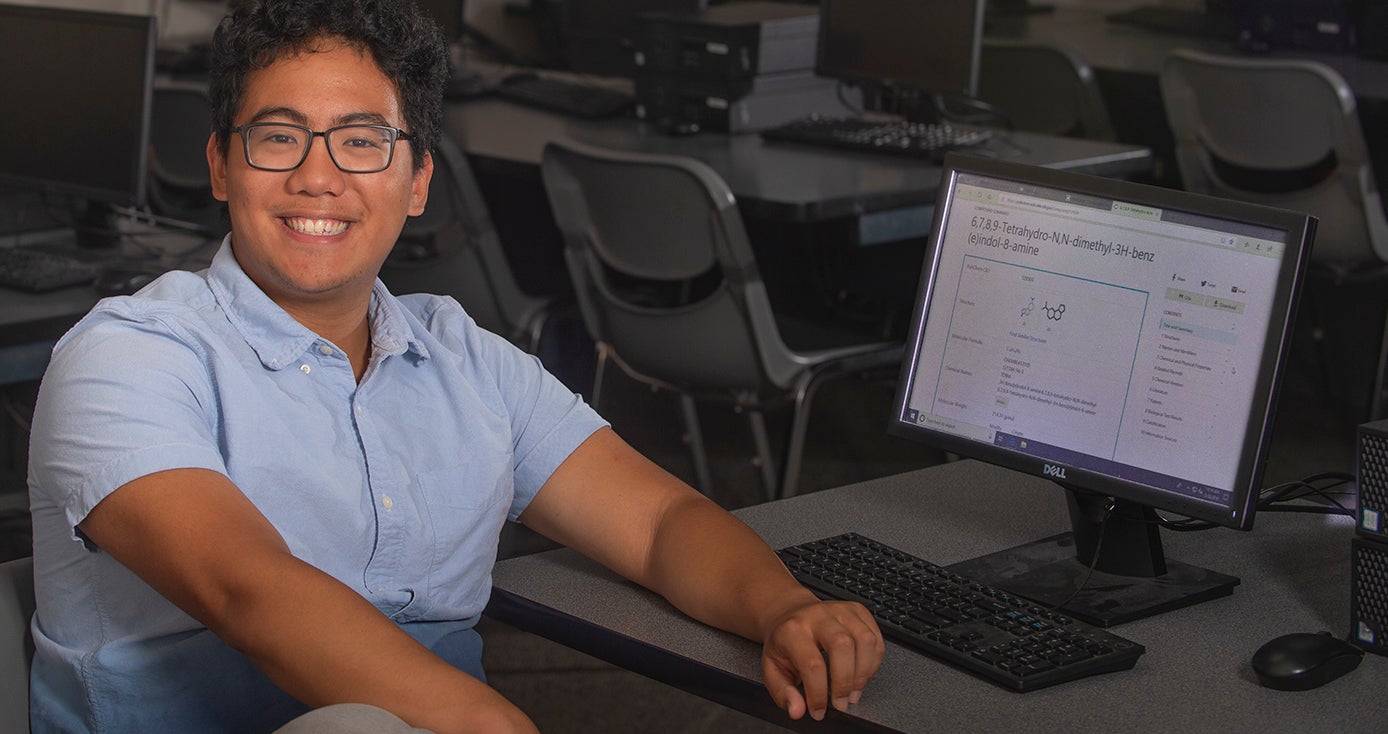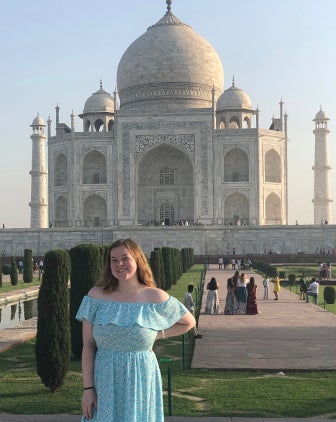
Subscribe to Pittwire Today
Get the most interesting and important stories from the University of Pittsburgh.General Education Requirements Can Spark New Interests, Lead to New Career Path
University of Pittsburgh students have access to over 100 undergraduate-level programs while attending one of the top research universities in the world. And although the options seem to be limitless, many new students are razor-focused on just one: their dream major, a gateway to their ultimate career.
But for many students, that initial path changes in due time. Research shows that a students changing their majors is a common part of the college experience. According to the U.S. Department of Education, about a third of undergraduate students change their major at least once by their third year of enrollment.
So, what’s the catalyst for these major changes? At Pitt, many students find themselves developing a newfound passion by surprise — while taking one of their general education requirements (GERs).
“The very structure of the GER curriculum allows students to explore different areas while still making progress toward an on-time graduation,” said Derek Fischer, director of advising in the Kenneth P. Dietrich School of Arts and Sciences. “GERs help to create students who are perceptive, reflective and intellectually self-conscious citizens within a diverse and changing world.”
Each school within Pitt has different GERs for its students, but they are mandatory for all students.
These two Pitt students, inspired by their GERs, took a newly discovered interest and turned it into a major — and potential career path.
“I had to Google what anthropology even was”
With an acceptance letter from Pitt’s Swanson School of Engineering, Molly Brandenburg came to college thinking her path as a bioengineer would provide her with the technological background to get into medical school someday.
“I knew I wanted to be a doctor, but bioengineering seemed like a smart way to get there. That was the plan,” said Brandenburg, a Pitt senior. “But, I changed my mind when I was looking at my schedule before the first day of classes.”
She knew she was set on a career in the sciences, and after a conversation with her adviser, she transferred into the Dietrich School without committing to any one major at the start.
“I liked chemistry and biology a lot from taking my AP classes in high school, but knew I was coming to college to explore,” said Brandenburg.
Brandenburg sought advice from her adviser to figure out which gen eds to take – and came away with a recommendation of cultural anthropology as a good fit.
“I told my adviser about my background. I came from a pretty small private Catholic school, and there wasn’t a lot of diversity,” said Brandenburg, who is originally from Hershey, Pennsylvania. “And so I took cultural anthropology and fell in love.”
Brandenburg said she admittedly had to Google what anthropology was before she set foot in Gabby Yearwood’s classroom. Yearwood, lecturer and director of undergraduate studies in the Department of Anthropology, was Brandenburg’s professor for her first anthropology class.
“Dr. Yearwood is one of the most engaging professors I’ve had,” said Brandenburg. “That class made me think about religion and culture in this way as us, as Americans, being different from the rest of the world.”
After that initial anthropology course, Brandenburg enrolled in more courses and decided to declare an anthropology major — concentrating on the cultural and medical facets of the field.
Brandenburg says one of her most memorable courses from the major was Magic, Witchcraft and the Supernatural Body, which looked into why different medicine across the world is considered “magic.” Her anthropological studies also took her to India in summer 2019, where she enrolled in a program that allowed her to do public health outreach in villages in the Himalayas and a clinical rotation in one of the local hospitals.
“During my study-abroad program, I was able to experience the health care system that I was learning about in the classroom — and saw it right in front of my eyes,” said Brandenburg. “That was a really cool and defining moment in my college career.”
While she never completely ruled out medical school after dropping her bioengineering degree, and after picking up chemistry as a double major, Brandenburg said that she plans to pursue a career in public health, largely shaped by her anthropology education.
From nursing to solving biological puzzles
Joseph Valdecanas wasn’t discouraged when he was waitlisted from Pitt’s School of Nursing program before he started as a first-year student.
“I knew I always wanted to go to Pitt, so I decided to switch to pre-pharmacy when I didn’t get in for nursing,” said Valdecanas, a Philippines native who grew up outside Philadelphia.
In time, he realized it wasn’t the right path for him.
“I like science, but not enough to go into it as a profession,” said Valdecanas. “I wanted to expand and take more classes.”
Still holding on to an interest in biology, Valdecanas took classes from different corners of campus — taking gen eds in political science and Introduction to Programming with Java, a course in what is now the School of Computing and Information (SCI).
“I decided to take the class because I had an interest in computer science, but I had no background,” said Valdecanas. “I knew it was a good field to be in, too.”
Valdecanas said that introductory computer science course opened his eyes to a world of puzzle-solving — using his mind in creative ways to solve biological problems. And he said the moment everything clicked was when he realized he actually enjoyed what he was doing.
Valdecanas said he initially thought the best way to pursue this interest was to add a computer science minor to a biology major, but then he said an adviser told him about the bioinformatics degree — what is now the new computational biology major, a joint degree with SCI and the Dietrich School.
“My favorite thing about bioinformatics is it’s not just memorization for a test. Bioinformatics to me is solving a puzzle within biology,” said Valdecanas. “I love problem solving because you can be given a problem – and find a solution in a completely different way than the person next to you.”
Valdecanas says his favorite aspect of the major so far has been making 3-D models using a computer, and the various techniques taught by Jacob Durrant, assistant professor in the department of biological sciences. Valdecanas used the skills he’s learned in his major to obtain an internship with Bayer in summer 2019 where he worked on IT and product management. He says someday he’d like to work in the pharmaceutical industry, thanks to his biology and computer science background.



